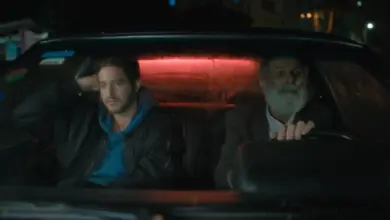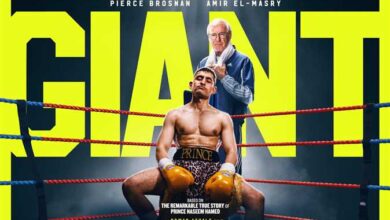Youssef Hesham stands out as a promising young director with an natural talent and a tendency to raise questions rather than answers. His first feature length film, Lamh el-Basar (The Glimpse, 2009), was awarded the jury’s special prize at the Alexandria International Film Festival in 2009.
An Korb (Extreme Close Up, 2005) and Akbar Al Kabaer (The Greatest of Sins, 2007) are among his short films that focus on the theme of truth and relative knowledge.
An Korb explores the idea of authority through a character who is always watching and judging others. “There is a hierarchy, which is expressed trhough ‘Ali’ who feels superior by watching other people and knowing their secrets,” explains Hisham. Others in the film also feel superior by achieving financial prosperity or by simply accruing more knowledge.
Akbar Al Kabaer is based on renowned novelist Youssef Idris’s short story portraying a married couple’s troubled relationship. The husband neglects his wife’s sexual and emotional needs in his quest for a humble and conservative life. Meanwhile, a young peasant uses the wife to fulfill his own sexual desires.
Hisham comments on how people maintain appearances that do not match their internal reality, how men in the village will sit for hours debating how their wife’s should dress modestly, instead of addressing both of their sexual needs. “People can view things from a very narrow angle,” says the director. “God did not created us to be preoccupied with such trivial matters (i.e., dress codes and appearances). There is a bigger picture of the universe and we are just a dot in it.”
Hisham’s first feature film probes a similar theme. Lamh el-Basar, based on Naguib Mahfouz’s short story Al-Leqaa (The Meeting), follows a young man’s trip to the city where he falls for the temptations of an older stranger, who turns out to be his future father-in-law.
“I only raise questions,” insists Hisham. “In the end I do not want to replicate what the Egyptian audience is accustomed to: a close up on the face of the lead actor spilling out the moral of the film. I do not have to offer answers, I can raise question.”
The jury prize at the 2009 Alexandria International Film Festival was not from Hisham’s first prize. The fresh cinema and media graduate of Misr University for Science and Technology has been given many awards in the past.
An Korb got the best script 2006, while Helm Stabl Aantar (Stable Antar’s Dream) was chosen as the best documentary film by The National Film Festival in 2007. Hisham was also selected as the best director by the French Cultural Center the same year, and was awarded for his short feature film Akbar Al Kabaer.
Having directed short indy films and long commercial features, Hesham sees the best of both worlds. “In independent cinema the constraints are financial, while in commercial cinema, producers can be problematic. In the end they each come in packages and you have to take them with their pros and cons,” he says.
“However, our main problem with the short films in Egypt is that nobody archives them,” adds Hisham. “On the other hand, nowadays I see so many low quality short films and they blame it on the budget but I am talking about the idea of the film, that does not need a budget.”
Hisham acknowledges that curretnly there are many opportunities as independent short films get much more exposure, awards in national festivals, and production opportunities from the National Cinema Center, even if their directors are not graduates of the High Cinema Institute.
“I am quite optimistic about the current state of Egyptian cinema,” boasts Hisham insisting that there were three Egyptian films featured at the Venice Film Festival in 2009. He concludes with a few observations to support his opinion: Each new film reflects a new idea or theme. Films are being broadcasted on numerous satellite channels. This year prominent directors like Youssri Nasralla, Dawood Abdel Said and Ossama Fawzi are making movies. The Ministry of Culture produced The Voyager starring renowned actor Omar Sharif with director Ahmed Maher. And, last but not least, the movie theater are always crowded.




